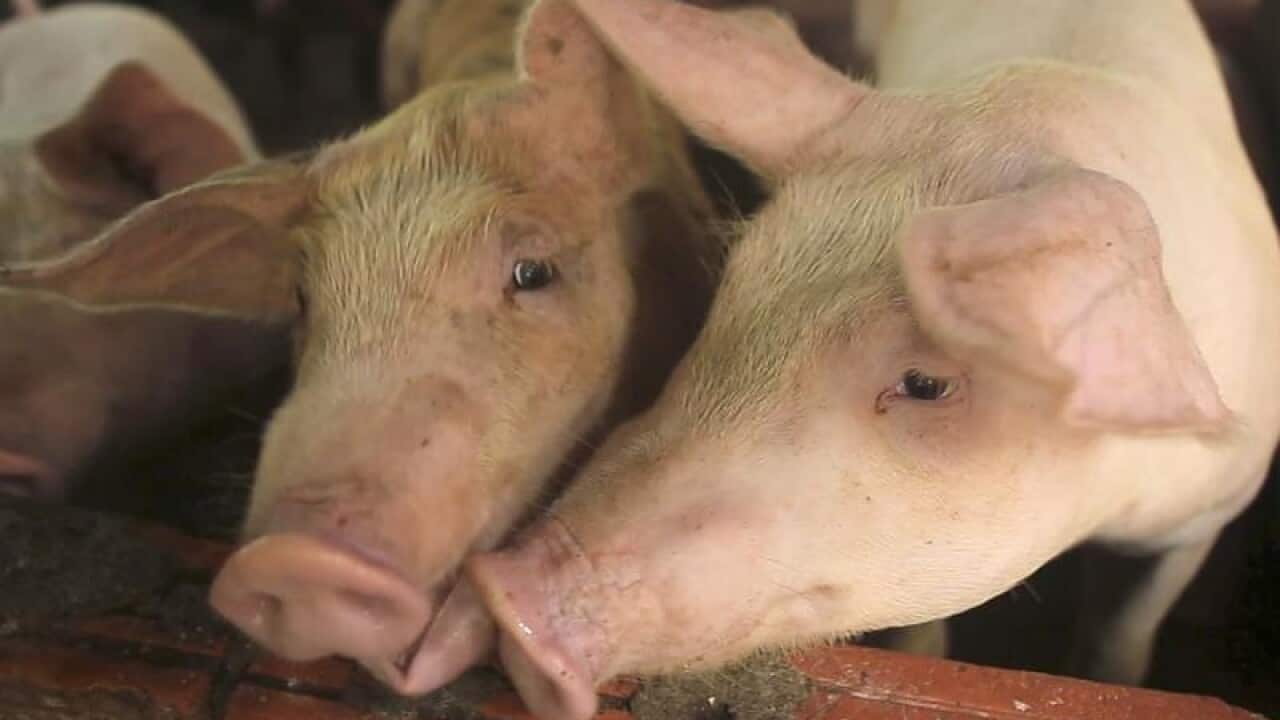Millions of pigs have been culled in China and Vietnam as a United Nations food agency urges Asian governments to make containing virulent African swine fever their top priority.
With an announcement by the UN Food and Agricultural Organisation that infections have spread to Laos, some experts are saying it is the largest animal disease outbreak in history.
The FAO said in a report on Thursday that more than 3.7 million pigs had been culled in China since the outbreak began there last August. Vietnam has been the hardest hit, culling at least 2.6 million pigs followed by China, which reported more than 1.1 million. All the figures were provided to the FAO by governments of countries affected by the epidemic.
Vietnam has been the hardest hit, culling at least 2.6 million pigs followed by China, which reported more than 1.1 million. All the figures were provided to the FAO by governments of countries affected by the epidemic.

Cambodian woman Aok Kim cleans her pigs near her home in Ta Prum village outside Phnom Penh, Cambodia. Source: AP
Smaller outbreaks have been reported in Hong Kong, Taiwan, North Korea, Cambodia and Mongolia after cases were first reported in China's northeast in August.
African swine fever is harmless to people but fatal and highly contagious for pigs, with no known cure.
In South Korea, where diets rely heavily on pork, there is concern an outbreak could hurt an industry with 6300 farms raising more than 11 million pigs.
China has reported 139 outbreaks in all but two of its 34 provinces. The US Department of Agriculture forecasts its total hog herd will shrink by 18 per cent this year to 350 million animals, the lowest since the 1980s.
The US Department of Agriculture forecasts its total hog herd will shrink by 18 per cent this year to 350 million animals, the lowest since the 1980s.

Asian nations are scrambling to contain the spread of the highly contagious swine fever. Source: AP
This year's Chinese pork output might fall by up to 35 per cent, according to Rabobank, a Dutch bank.
In Cambodia, more than 2400 pigs have died or were culled since April in an eastern province bordering Vietnam, the FAO said.
Hong Kong authorities have killed 10,700 pigs in two outbreaks, including one triggered by an animal imported from the mainland that was found to be infected. Two dead pigs infected with a virus similar to those in mainland Chinese were found in Taiwan, the FAO said.
Epidemic fighting efforts have gotten entangled in regional geopolitics.



